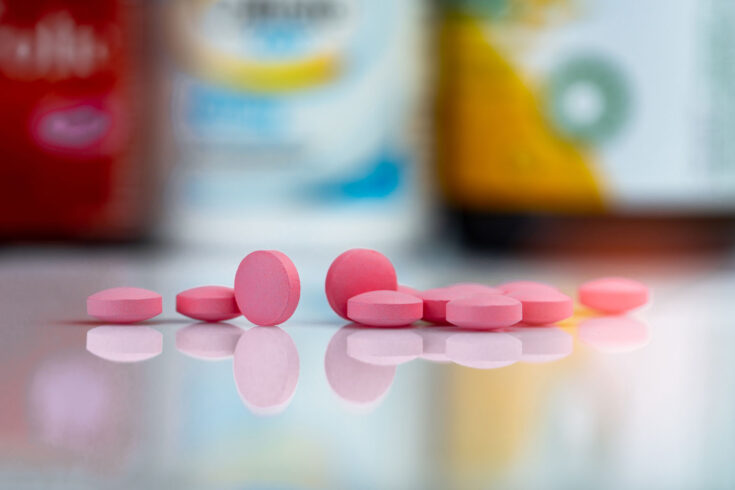In 2021, an estimated 10.6 million people worldwide fell ill with TB and 1.6 million people died from the infectious disease.
Treating TB typically takes months and requires patients to take multiple drugs. This poses logistical challenges in completing treatment for many people. So, it is widely agreed that shortening TB treatment is needed to thwart the global burden of the disease.
Heartburn drugs like omeprazole, pantoprazole, lansoprazole and rabeprazole are cheap, commonly available, safe, and are already approved. Researchers found that these drugs stop the bacteria that cause TB from becoming tolerant to antibiotics used to treat the illness.
When we’re infected, TB bacteria enter our tissues and invade cells that make up part of our immune system, called macrophages. The bacteria then turn on pumps in their cell membranes that pump out the antibiotics we use against them. This renders the bacteria tolerant to the antibiotics, a reason it takes so long to treat TB.
The new study
In this new study, the team decided to test if a cardiac and blood pressure drug called verapamil, which blocks human cell membrane pumps, could also block the bacterial cell membrane pump. The study is led by Professor Lalita Ramakrishnan and colleagues from the University of Cambridge and the MRC Laboratory of Molecular Biology (LMB).
To do this, they used a neat approach in which they tagged an antibiotic typically used to treat TB, rifampicin, with a fluorescent marker so they could track exactly how the bacteria process the antibiotic. This meant they could directly see that verapamil does indeed stop the bacteria ejecting rifampicin.
The researchers then wondered if other drugs in wide use for all sorts of conditions, which also incidentally block human cell membrane pumps, could have the same effect on the TB bacterial pumps as verapamil.
Drug screening
Professor Lalita Ramakrishnan said:
That’s when my PhD student, Alex Lake, decided to screen these drugs and bingo, many of them worked.
The most stunning of all was the class of proton pump inhibitors that are among the most widely used, over-the-counter drugs for heartburn, reflux, gastritis: omeprazole, pantoprazole, lansoprazole, rabeprazole.
Not only do they work, but they work as well as or possibly with even greater potency than verapamil.
This is very cool, because 1 of the holy grails of TB treatment is, can we come up with shortening regimes.
And since active drug pumps are thought to enable bacteria to develop drug resistance, there is a possibility that these drugs could at the same time reduce the chances of drug resistance, a significant problem in TB treatment.
Pathways to future treatment regimes
Dr Stephen Oakeshott, Medical Research Council (MRC) Head of Infection and Immunity, said:
This exciting work is a great example of how understanding basic cellular mechanisms can directly unlock pathways to future treatment regimes.
The potential for repurposing cheap and easily accessible drugs to accelerate TB treatment could have enormous health impact worldwide and we look forward to seeing this discovery move forward.
So far, this work has only been carried out in cells. More research will be needed before eventually moving onto clinical trials to look at potential treatment regimes for drug combinations in patients.
The MRC LMB and University of Cambridge researchers collaborated with researchers across the university, as well as in Italy and in the US.
Top image: Credit: Fahroni, iStock, Getty Images Plus via Getty Images

